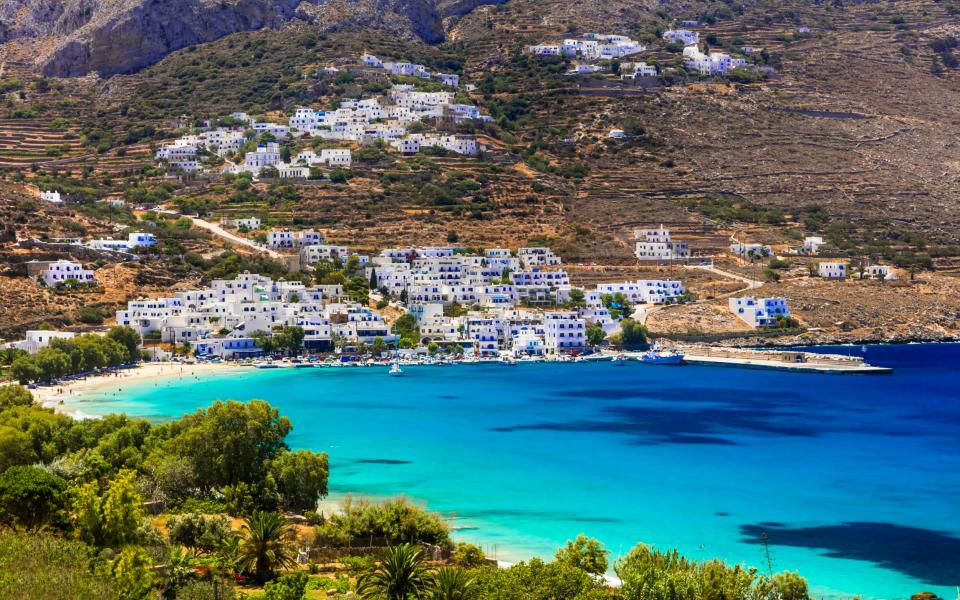A retired American policeman has gone missing while hiking on a small Greek island as a record early heatwave hits.
Eric Calibet went missing just days after Michael Mosley, the British TV doctor, died on a walk across rugged hills on the island of Symi, in the Dodecanese.
Mr Calibet has been missing since Tuesday, when he set off on a hike on the island of Amorgos in the Cyclades group of islands.
It comes as Greece is set for its earliest recorded heatwave, which has forced the closure of the Acropolis and some schools as the mercury rose to 43C in Athens.
Authorities on Amorgos released a photo of the missing 57-year-old American to help with search and rescue operations on the island, which has a network of well-kept hiking trails.
He set off from the village of Aegiali, in the north of the island, and was heading for the town of Katapola, the main port. The hike takes around four hours under normal conditions.
It is a well-known and well-maintained trail.
When he failed to turn up, a friend reported him as missing. The island is subject to a “severe high temperature warning” this week.
A search operation has been launched, with additional emergency personnel arriving from the nearby island of Naxos.
The American is well known on Amorgos, having visited several times.
“He had completed the Aegiali to Katapola hike several times in the past,” Calliope Despotidi, the deputy mayor of Amorgos, told Greek Reporter, a news website.
“It is strange because he is not a person who walked the route for the first time. He knows Amorgos better than me.”
She said she was concerned that scorching temperatures may have been a factor in his failure to turn up at his destination.
“He may have lost consciousness because of the heat and hopefully found shade in one of the caves along the route,” Ms Despotidi said.
She said she hoped the American hiker had not met the same fate as Dr Mosley, 67. His body was found among rocks on the coast of Symi on Sunday, four days after he was reported missing.

As Athens was hit by scorching temperatures, the Greek Red Cross took to the streets to hand out free water and information leaflets on how to deal with the heatwave.
“Extreme heat doesn’t have to become a disaster if cities and communities are well prepared,” said Birgitte Bischoff Ebbesen, Europe regional director for the International Federation of Red Cross and Red Crescent Societies.
Sheltering under a parasol, electrician Fotis Pappous said he had started his workday at 6am to try to avoid the hottest part of the day.
“With this kind of heat, it would be too risky otherwise,” the 46-year-old told AFP news agency as he worked on an electricity meter near Athens’s central Syntagma Square.
Last July, high temperatures forced the closure of the Acropolis during a two-week heatwave that was unprecedented in its duration.
The Unesco-listed site, which sits on top of a sheer-sided rocky crag and dominates Athens, attracted almost four million tourists last year.
The stifling conditions in Athens were worsened by thick black smoke from a fire that broke out at a factory in the north of the city.
Authorities have warned of a high risk of wildfires in the countryside of Attica, the region that surrounds Athens.
The high temperatures were expected to continue into Thursday, driven by southerly winds from North Africa.
Source Agencies



